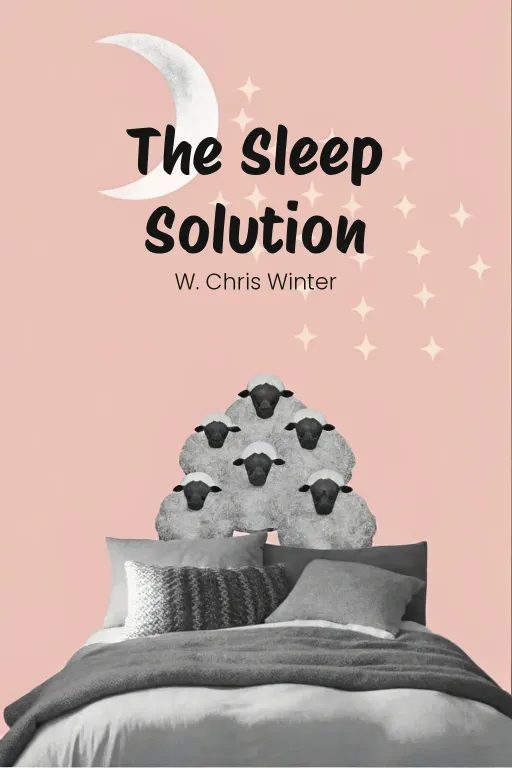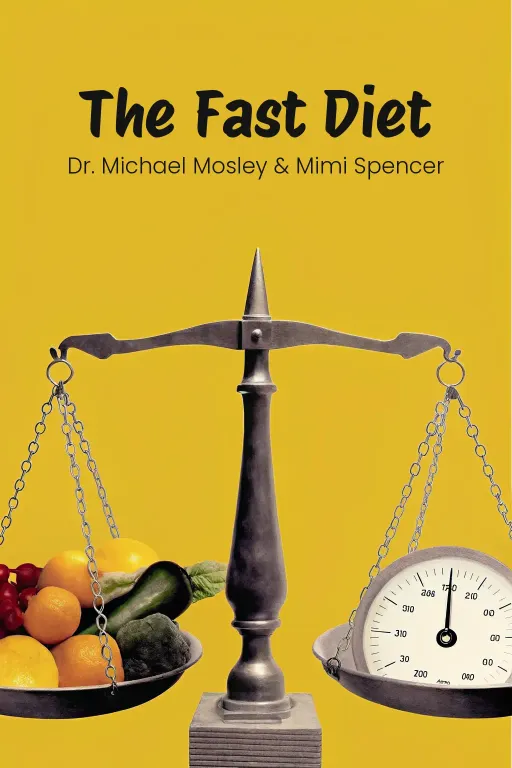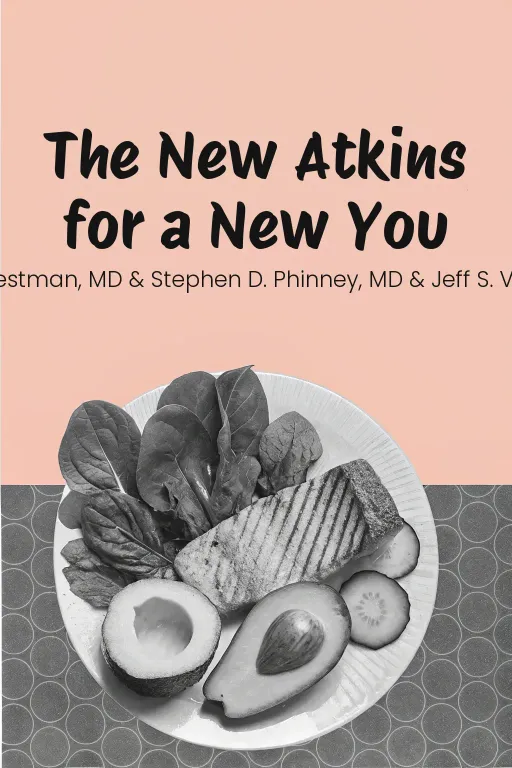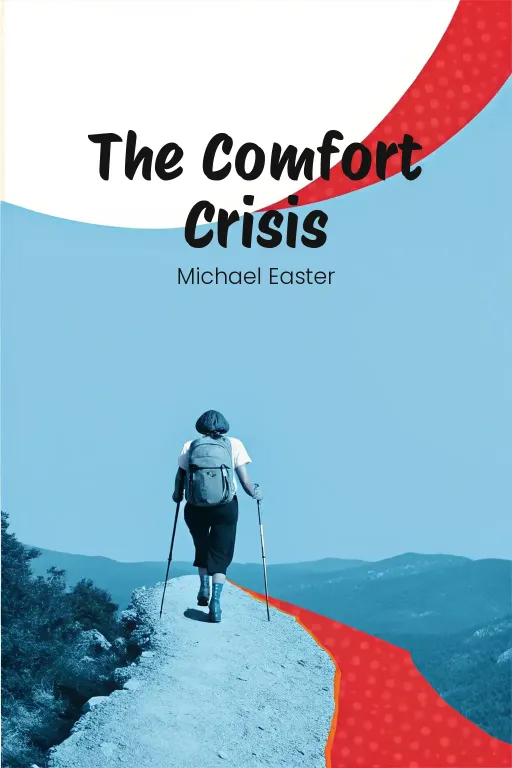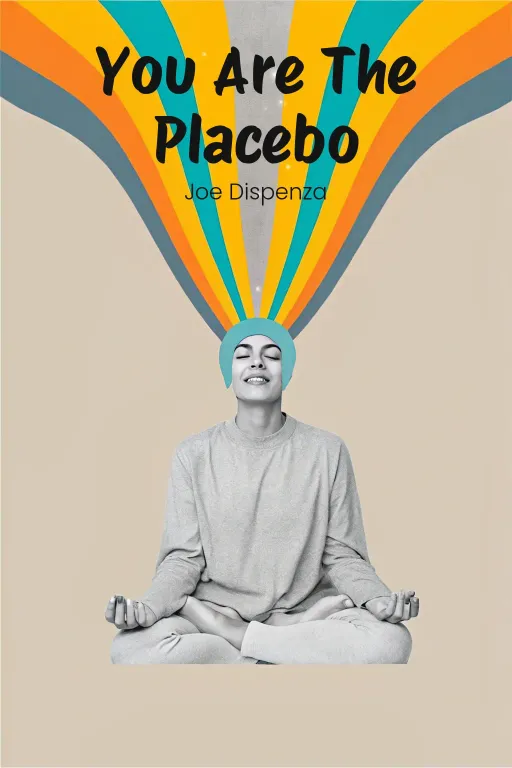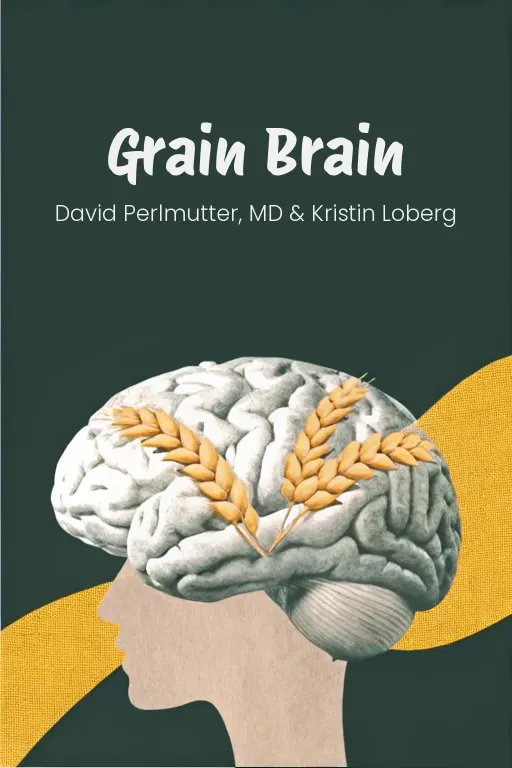
Sleep Smarter: Hack Your Body's Reset Button
Podcast by Beta You with Alex and Michelle
Why Your Sleep Is Broken and How to Fix It
Introduction
Part 1
Alex: Hey everyone, welcome! So, did you ever stop to think that sleep isn't just a necessity, but something you can actually optimize? I mean, behind every restless night, there's usually a solvable problem, right? We're going to dig into that today. Michelle: Okay, Alex, let me guess: it's not just about skipping that late-night espresso, is it? Sleep seems straightforward, but honestly, at least half of us are walking around like sleep-deprived zombies, and the other half are just pretending they've got it all under control. Alex: Precisely! That's where The Sleep Solution by Dr. W. Chris Winter comes in. The book really gets into all the myths and misunderstandings around sleep—why so many of us struggle, and what we can actually do to fix it. Dr. Winter explores the science of insomnia, circadian rhythms, and even gives tips on how to make the most of naps. It's not just about sleep “hacks”; it's really a comprehensive plan for better energy, mood, and overall health. Michelle: Alright, so what's on the agenda for today? Alex: We’re diving into three key takeaways from the book. First, we’re looking at why sleep is absolutely crucial—not just downtime. Then, we’ll explore how our daily habits – let’s be honest, often bad choices – mess with our natural sleep patterns. And finally, we'll discuss actionable strategies to get those restful nights back, from tweaking your bedtime routine to rethinking your whole approach to sleep. Michelle: Sounds like we are unlocking some abilities, like our brain's full potential, right? Alex: Exactly! From the biology of sleep, to small adjustments in our behavior, to those everyday tips, you’ll really understand why sleep is this unsung hero of good health. Michelle: That sounds great! Maybe by the end of this, I'll finally figure out why my Netflix binges sabotage my mornings. And hopefully, you'll have some tips on how to avoid that permanent jet-lag feeling without actually setting foot on a plane.
The Science of Sleep and Its Importance
Part 2
Alex: Okay, so, picking up where we left off, let’s dive into the very basics: what “actually” happens when we sleep? I mean, we often think of sleep as just, you know, turning off. But it’s really a super active process. Your brain and body are basically a tag team, working on essential maintenance. Michelle: Maintenance tasks? Are we talking like, oil changes for the brain? Because if we are, somebody forgot to top me off last night. Alex: <Laughs> Pretty much! Sleep happens in stages, and each one has its own specific job. First up: light sleep, Stages 1 and 2. This is where your body and brain start to slow down after being active all day. It’s like the transition from being awake to entering those deeper, more restorative phases. It takes up about half your sleep cycle, and while it’s not as restorative as deep sleep, it’s crucial for kicking off the whole process. Michelle: Okay, so light sleep is the warm-up. But what about the “good” stuff, deep sleep? That’s the one everyone talks about wanting more of, right? Alex: Exactly! Deep sleep, or slow-wave sleep, is your body’s personal repair shop. During this stage, your brain produces slow delta waves, your muscles really relax, and your body releases growth hormones, fixes damaged tissues, strengthens your immune system... I mean, deep sleep is what makes you feel rested. If you've ever been jolted awake during this stage, you know that groggy, "What planet am I on?" feeling. Michelle: Oh, I know that feeling all too well. And this is also the part that’s critical for memory, isn’t it? Isn’t this when your brain finally files everything from the day away? Alex: Yep! Deep sleep consolidates short-term memories into long-term storage, so it's pivotal for learning. It's like your brain finally gets to sit down and organize its desk after a crazy day. Michelle: Alright, so light sleep is the on-ramp, and deep sleep fixes both the body and mind. That leaves REM sleep, right? Isn’t this the dream factory? Alex: Exactly! REM sleep is when your brain becomes super active again—almost like it’s mimicking being awake. You cycle into REM about every 90 minutes throughout the night. It’s where dreams happen, but it’s also critical for emotional regulation and cognitive processing. Think of it as your overnight therapist; your brain’s using this time to process emotions and untangle everything that's happened. Creative problem-solving happens here, too. That’s why people say, "Sleep on it." REM helps your brain work through those complex puzzles that you couldn’t crack when you were awake. Michelle: So my brain’s busy doing math problems while I’m dreaming about surfing on clouds? Impressive multitasking. Alex: Pretty much! And here’s where it gets interesting — this entire cycle, from light to deep to REM, happens about four to six times a night if you’re getting the recommended seven to nine hours. Michelle: Okay, that’s all fine and good. But then why do I feel like I’ve been through a blender on days when I technically get seven hours? Alex: Ah, great question! That brings us to sleep quality versus quantity. You could be getting the right number of hours, but if your cycles are constantly interrupted—by stress, screen time, or even sleep disorders like apnea—you're not giving your body a full chance to complete those restorative tasks. Sleep is about more than just "time in bed." Michelle: Speaking of restoration, let’s talk about this glymphatic system that you mentioned earlier. I’m still stuck on the idea that my brain has got its own garbage collection service, and it works overtime while I’m asleep. Alex: It's a fascinating discovery! For years, researchers thought the brain didn't really have a waste-removal system. Then they found the glymphatic system, which works way better when you're asleep. It's like a cleaning crew that uses cerebrospinal fluid to flush out toxins like amyloid beta—which is heavily linked to Alzheimer's if it accumulates, by the way. Michelle: So let me get this straight—if I don’t sleep enough, my brain’s basically marinating in junk? No wonder sleep deprivation makes me feel so foggy. Alex: Exactly. Chronic deprivation can lead to higher amyloid deposits, among other issues. It's like leaving dishes in the sink. Your brain can’t function if it's full of clutter. Michelle: Alright, I’m officially convinced sleep is vital. But what about falling asleep in the first place? That’s where most people, myself included, struggle. What actually triggers our bodies to start the sleep cycle? Alex: Well, that's guided by three main biological drivers: adenosine, the circadian rhythm, and melatonin. Adenosine, for instance, is a chemical that builds up in your brain while you’re awake. It makes you feel more and more drowsy as the day goes on. Think of it as sleep pressure—it builds and builds until you crash. And during sleep, your body clears it out, totally reset. Michelle: Kind of like plugging in your phone at the end of the day—deplete the power, then recharge. Alex: Precisely! Then there's the circadian rhythm, which is your internal clock, and it's governed by cues like light and temperature. It works on a roughly 24-hour cycle and makes sure you feel awake during the day and sleepy at night. Scientists tested this by isolating people from all light cues—and the rhythm persisted, though it drifted a bit beyond 24 hours. Michelle: That’s wild. So our bodies are hardwired for timekeeping, even if we’re living in a cave. But I’m guessing modern life—hello, smartphones and late-night email—is messing with that rhythm? Alex: Oh, big time. One of the worst culprits? Blue light, which suppresses melatonin production way past its natural onset. Melatonin is that gentle tap on the shoulder that says, "Hey, it’s time to wind down." And if your screens are shining bright into the night, it's like hitting snooze on that signal. Michelle: Letting TikTok push melatonin into overtime—yep, guilty as charged. All jokes aside, this explains why consistent sleep patterns feel nearly impossible in today’s world. Our biology just doesn’t seem built to keep pace. Alex: True, but understanding these mechanisms gives us the tools to work with our biology instead of against it. Like, getting natural morning sunlight and cutting down on screen exposure at night can go a long way toward recalibrating that rhythm. Michelle: Alright, so we’ve covered the stages of sleep, the brain-cleaning crew, and biological triggers. But what’s the cost if we ignore all of this? What happens when you consistently skimp on sleep?
Common Sleep Disorders and Their Management
Part 3
Alex: You know, ignoring how important sleep is does more than just make you feel groggy. It really sets the stage for a whole bunch of problems. And that brings us to some common sleep disorders, and how they make all these issues even bigger. Let’s start with insomnia. It’s not just about lying awake at night; it’s this constant feeling of dissatisfaction with your sleep that just messes up your days. Michelle: Exactly, and while everyone has a bad night now and then, true insomnia is like trying to catch sleep, but the more you try, the more it slips away. What’s causing all that? Alex: Oh, a lot of things, actually. Stress is a big one, especially with short-term insomnia. Think about someone stressing over a work presentation—all those worries just keep swirling around in their head all night, delaying sleep. But when this becomes a long-term thing, it goes beyond just the initial stress. People start obsessing over not being able to sleep, and that creates a negative loop where their bed becomes a source of stress. They start dreading bedtime because they think it will just bring frustration. Michelle: So insomnia goes from being about stress at night to a complete mental block? Man, that makes it sound even harder to fix. Alex: It does take effort, but treating insomnia has gotten a lot better. Cognitive behavioral therapy for insomnia, or CBT-I, has been highly effective. It’s all about cutting that negative connection with sleep—kind of like, retraining your brain to stop spiraling at night. For instance, patients are taught to change their thinking, from these catastrophic thoughts like, “If I don’t get eight hours, I’m going to fail tomorrow,” to something more realistic, like, “I’ve handled tough days on little sleep before.” That switch makes you less anxious, which makes it easier to relax enough to actually fall asleep. Michelle: Can just changing your thoughts really make that much of a difference, though? Because when you’re lying there at 3 a.m., staring at the ceiling, it feels like more than just a bad thought pattern. Alex: Absolutely, which is why CBT-I also includes behavioral changes. Like, stimulus control trains you to use your bedroom strictly for sleep—no eating, working, or scrolling. And when you combine that with things like progressive muscle relaxation or visualization, you’re showing your body that it’s safe to let go of all that daytime stress. Michelle: Okay, so therapy rewires your brain and you turn your bedroom into a tech-free zone. Got it. What about medications, though? Seems like those would be a quicker fix. Alex: That’s a common thought, but meds don’t really get to the root of the problem—they’re more like a temporary solution. Plus, they can have side effects, and people can build up a tolerance over time. The real answer is to consistently reshape your habits and how you think about sleep. Michelle: Got it. Insomnia is about breaking that cycle of fear and frustration. But what about something scarier—sleep apnea? Sounds like it’s turning sleep into an actual health risk. Alex: It can be, if it’s not treated. Sleep apnea is when someone stops breathing repeatedly during sleep, usually because their airway gets blocked. These brief awakenings prevent your body from getting into that deep, restorative sleep. People wake up feeling totally exhausted, and it’s not just about feeling tired—untreated sleep apnea can lead to high blood pressure, heart disease, even strokes. Michelle: What’s even more scary is that a lot of people don’t even know they have it. They just think they’re bad sleepers when they’re actually gasping for air all night. Alex: Exactly. Many people just brush off loud snoring as annoying, but snoring on a regular basis combined with feeling tired during the day is a big red flag. Usually, a sleep study is needed to make a diagnosis. It monitors your breathing, oxygen levels, and brain activity overnight. Michelle: And the treatment? Do we all just start wearing those Darth Vader CPAP masks? Alex: CPAP therapy is still the best way to go for moderate to severe cases. It uses continuous positive air pressure to keep your airway open all night. It takes some getting used to, but many patients notice a difference almost right away—more energy, better memory, and better health overall. But there are other options for milder cases, like custom-fit mouthpieces that move your jaw or even lifestyle changes like losing weight and sleeping on your side. Michelle: So, for people who are hesitant about CPAP therapy—what happens if you just ignore apnea? Alex: It’s a huge risk. Constantly depriving your body of oxygen puts stress on your heart and blood vessels, which raises your risk of really serious conditions. Plus, fragmented sleep affects everything from your focus to your mood, so your quality of life goes down the drain. Treating apnea can be life-changing—and sometimes life-saving Michelle: Speaking of life-changing, what about those weird things people do in the middle of the night—parasomnias, right? They can be anything from a little quirky to downright dangerous. Alex: They are fascinating, but they can also be alarming. Most of us have heard of sleepwalking, but it’s not always just a harmless thing kids do. It can lead to sleepeating, or even sleep-driving, where people do these things without being aware of it, which puts them and others at risk. Sometimes it’s linked to medications like Ambien, which can increase the risk of episodes. Michelle: Yeah, I’ve read those crazy stories about people waking up to find they’ve raided the fridge or ended up miles from their house with no memory of it. That must be so unsettling. Alex: It “really” is. Then there’s REM sleep behavior disorder, or RBD, where people act out their dreams because the brain’s usual muscle paralysis during REM sleep isn’t working right. This can lead to all kinds of physical activity, from yelling to punching—and it can be dangerous, especially for their bed partners. Michelle: Sounds like RBD can turn “pillow talk” into dodgeball. Alex: <Laughs> That’s an interesting way to put it. Diagnosing parasomnias like RBD usually requires sleep studies, and treatment can involve things like changing the sleep environment to medications like melatonin or sedatives to calm overactive neural pathways while you sleep. Michelle: So we’ve gone from restless nights with insomnia to interrupted breathing with apnea to sleepwalkers raiding kitchens. Is there a common thread here—are all these disorders asking for the same fundamental fix? Alex: Yeah, they all “really” emphasize something important: quality sleep isn’t just about how many hours you get—it’s about making sure your whole sleep process is functioning properly. Spotting and treating these issues doesn’t just help you rest, it also dramatically improves your physical and mental health. Michelle: Exactly, because sleep isn’t just some break between the “important” parts of life—it is one of the important parts.
Strategies for Better Sleep
Part 4
Alex: So now that we’ve covered how sleep disorders show up and how they're treated, let’s dive into some concrete strategies for better sleep in our daily lives. This is where it all starts to feel actionable, right? Like, how do we actually “make” our sleep better? Michelle: Okay, we're moving from problems to solutions, I like it. So, I'm guessing this is more than just setting a bedtime and hoping for the best? Alex: Definitely. It's more than just the basics. We're talking about four key areas: sleep hygiene, dietary tweaks, behavioral routines, and, “sometimes”, medication. It's about building a solid foundation for good sleep, not just chasing hours on the clock. Michelle: "Sleep hygiene"... that sounds like a buzzword. What does it “actually” mean? Am I just supposed to wash my sheets more often? Alex: <Laughs> if only it were that simple! So, sleep hygiene is about the habits and environment that support sleep. Think consistent sleep-wake times – that helps regulate your circadian rhythm, which is like your internal clock, tuned to light and dark. Michelle: Ah, the circadian rhythm. That 24-hour biological ticker we’re all messing up by scrolling through TikTok at 2 AM? Alex: Exactly! Irregular schedules—late nights working, sleeping in on weekends—can really throw it off. Studies show that sticking to a consistent routine helps train your body to anticipate rest, making it easier to fall asleep and “stay” asleep. Michelle: But what about night owls? Some people genuinely are more productive when the sun goes down, right? Alex: That’s true. Your internal chronotype—night owl, early bird, or somewhere in between—does matter. But even night owls benefit from some consistency. Maybe you adjust your wake-up time gradually, or find ways to align your daily schedule with your natural rhythm as much as possible. Michelle: Okay, so routine is key. What about the actual sleep environment? You mentioned our bodies are wired to rest in certain conditions. Alex: Right. A quiet, dark, and cool room is ideal. Think about it, our ancestors slept outdoors, so our biology finds those conditions comforting. Modern disruptions—street noise, artificial light, or even a too-hot room—can sabotage sleep. Michelle: What's the deal with light, though? Is it just about how bright the room is? Alex: It's not just brightness, but the “type” of light. Blue light from phones, tablets, even some LED bulbs, suppresses melatonin—that's the hormone that signals "bedtime" to your body. A lot of sleep problems come from people looking at screens in bed, fighting that natural signal. Michelle: So, ditching TikTok for a book might actually help me sleep better? Noted. What about temperature? I always thought keeping my room freezing cold was just a weird personal preference. Alex: There’s actually some biology to it. Your body temperature naturally drops as you get ready for sleep, so a cooler room sends a signal to stay in that state. Generally, 60 to 67 degrees Fahrenheit is the sweet spot. Michelle: Alright, I see the sleep hygiene picture coming together. What about food, though? I hear so many conflicting things—milk helps you sleep, late-night snacks keep you up. Alex: Food has a bigger impact than you might think. Melatonin-rich foods, like tart cherries or walnuts, can help kickstart sleep. Magnesium-rich foods—almonds, for example—promote relaxation. But avoid heavy or greasy meals too close to bedtime—digestion can keep you too alert to wind down. Michelle: So, midnight nachos are a no-go. What about caffeine? Is there a hard cut-off time? Alex: Everyone metabolizes caffeine differently, but a good rule of thumb is to stop at least six hours before bed. It can stay in your system longer than you think and delay the rise in adenosine—that "sleep pressure" we talked about earlier. Michelle: Got it. No triple espressos after 4 PM. Though, for the record, I'm keeping my pre-bed chamomile tea ritual—that's basically liquid calm, right? Alex: Definitely! Chamomile contains apigenin, which promotes sleepiness. Pair it with a light snack, like almonds or honey on toast, and you've got yourself a calming bedtime ritual. Michelle: Food and light are easy enough to adjust. But what about mental habits? How do you turn off the noise in your brain when it's replaying every awkward interaction you've ever had? Alex: That's where practices like journaling and meditation can come into play. Journaling can help you offload worries or tasks onto paper, so your brain doesn't feel the need to keep running through them. Gratitude journaling, in particular, can shift your mindset to a more positive frame. Michelle: Journaling makes sense. Meditation always sounds a bit abstract, though. Where do you even start? Alex: Techniques like progressive muscle relaxation or guided imagery are great for beginners. For example, picturing yourself locking your worries in a box and setting them aside can be surprisingly effective. The goal is to slow down your thoughts and bring yourself into the present. Michelle: I can see that helping. And I remember you mentioning morning light earlier. How does that fit in? Alex: It's all about strengthening your circadian rhythm. Morning sunlight triggers cortisol and suppresses melatonin, effectively resetting your internal clock. Just stepping outside for 10 to 15 minutes in natural light can make a big difference. Michelle: Okay, environment, diet, mental strategies... covered. When do you actually consider sleep meds? Some people see them as a last resort, others rely on them every night. Alex: Generally, medications should be short-term solutions, used during acute situations like grief or major stress—not as a crutch. Over-reliance can actually disrupt your body's ability to regulate sleep naturally. Michelle: So if pills aren't the ultimate answer, what is? Alex: It's the blend of everything we've discussed – a consistent routine, thoughtful diet, and calming pre-sleep habits. Lasting change happens when you address the “root causes” of poor sleep, rather than just treating the symptoms.
Conclusion
Part 5
Alex: Okay, so if you remember just one thing, here it is: Sleep isn't just downtime, it’s absolutely fundamental for your body and mind to function well. We’ve talked about the sleep cycle, why it's crucial for health, and what happens when things go wrong, like with sleep disorders. The good news is, with some understanding and the right habits, better sleep is within reach for most of us. Michelle: Exactly. We're not aiming for some impossible ideal here. It’s about making deliberate adjustments, whether that’s improving your sleep environment, sticking to a regular schedule, or knowing when to get professional help for a sleep issue. It’s about progress, not perfection. Alex: Absolutely. So, start small! Maybe dim the lights a bit earlier, try to go to bed at the same time each night, or put your phone away an hour before you sleep. Each little step can really help you gain momentum towards more energy, sharper focus, and better health overall. Michelle: Yeah, because ultimately, sleep isn’t a luxury—it's more like your personal “reset” button. Use it wisely.

